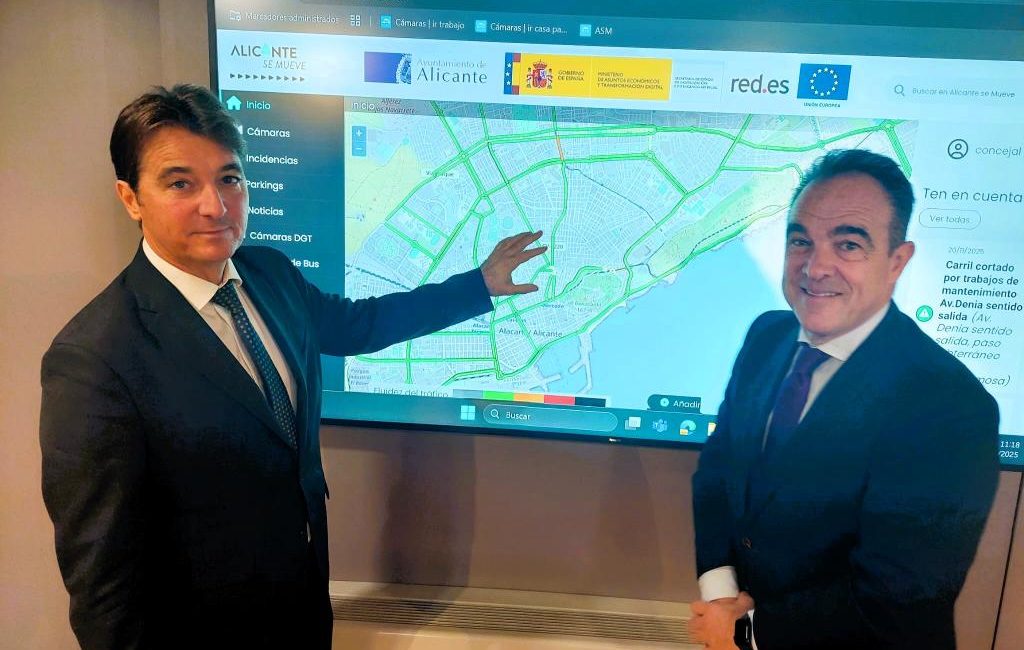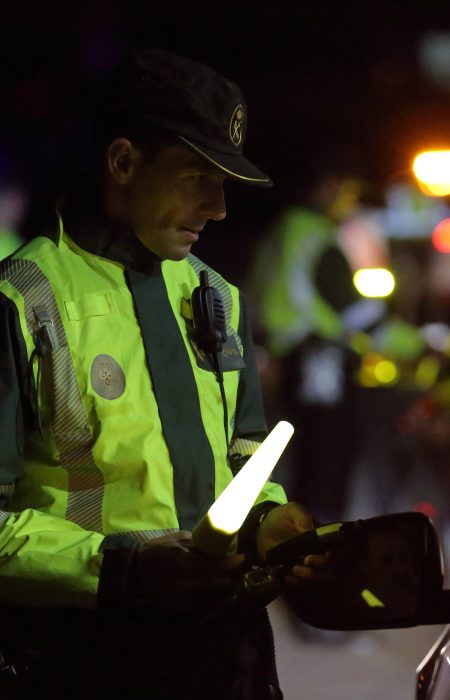The first software from the Alicante City Council, “Alicante Moves,” is now ready to be downloaded. This service, together with a website, will let people see traffic conditions, accidents, roadworks, and breakdowns in real time, as well as available parking spaces. This information comes from over 300 cameras that are set up on the streets of Alicante and are updated every five minutes.
The new method takes care of things like traffic intensity, vehicle speed, travel time, the capacity of a certain segment, the peak hour factor, the level of parking occupancy, the calculation of public transport timeliness, and the trip times per stop.
The app is only accessible for Android phones and tablets through the app store right now. The City Council does, however, expect it to be available for Apple phone users in the next few days. No matter what, the website movilidad.alicante.es has been up and running on all smartphones, computers, and tablets since Friday, November 21st. You can download the app. from the Play Story here https://play.google.com/store/apps/details?id=com.ibermatica.alicantesemueve&hl=en
The City Council says that one of the benefits of this improvement for urban transportation in Alicante is that it will save millions of litres of fuel each year by optimising routes. In this case, and assuming a conservative scenario in which cars use an average of 5 litres of petrol per 100 kilometres, 2.32 million litres of petrol would no longer be consumed each year.
The basic goal of the initiative, which has been going on for a while now, is to gather completely anonymous data from vehicle licence plates that are driving throughout the city. This will make it easier for people to get around by creating mobility patterns based on where a vehicle came from, what day and time of the week it is, and what season it is. It will also make it easier to make decisions about how to regulate traffic lights by giving data to back up or reject adjustments that have already been made.
“Big Brother”
The digital platform uses data from the traffic surveillance system, which has 332 cameras on important highways. These cameras include imaging devices and licence plate scanners. Of them, 65 show pictures of important roads and crossroads on the platform.
The Traffic Screen Control Centre keeps an eye on these cameras. After processing, it sends real-time information about traffic conditions and accidents to the platform, where you may also see still photographs. Users can also make their own itineraries to get pictures of the streets they plan to travel on.
The “Alicante Moves” program started during the tripartite coalition government and is now run by the Department of Urban Mobility. It was co-funded by the European Union’s ERDF money. The overall budget was €2.94 million, with 60% coming from the government through EU financing (€1.76 million) and the other 40% (€1.17 million) coming from the city’s own funds.
“It is the most important app for getting around that a state-level city council has made.”
“This is the most important mobility app launched by a city council at the national level,” said Antonio Peral, the Councillor for Innovation. The Popular Party councillor said that the City Council is “incorporating Smart City projects into its innovation strategy” by using “the latest data management, geolocation, and artificial intelligence technologies.”
“The goal is to create a complete system for managing urban mobility using smart technologies.”
Carlos de Juan — Urban Mobility Councillor
Carlos de Juan, the head of Urban Mobility, said that the main goal of his department and the Innovation department is “to build a comprehensive urban mobility management system based on advanced intelligent analysis technologies.” This system will allow for “efficient traffic management” as well as “obtaining real-time data, optimising decision-making, and providing citizens with useful and accessible information about their mobility environment.”
Long-term plan
The initiative started in October 2015, when the City Council approved “Alicante se mueve” and allowed it to enter the call for funding from the public business organisation Red.es for the creation of the smart cities program.
Red.es decided who would get the money in August 2016. The Alicante City Council was chosen first because it met all the requirements set out in the regulatory bases of the call. The amount of money that could be given was two million nine hundred forty-two thousand one hundred ten euros with fifty-nine cents (2,942,110.59 euros).









No Comment! Be the first one.